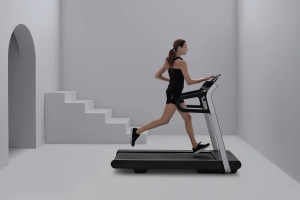Regular exercise makes us stronger and more resilient and helps us to prevent risk factors, which, in the event of a virus infection, would make the course problematic or even dangerous.
Numerous scientific evidence shows that regular exercise makes us stronger and more resilient and helps us to prevent risk factors – such as diabetes, obesity, and cardiovascular diseases – which, in the event of a virus infection, would make the course problematic or even dangerous.
In these hours the whole world is looking with hope and confidence at research developments and authoritative studies show that exercise is an important ally of the vaccine, amplifying its effectiveness. Two recently published studies show that exercise amplifies our response to vaccines. The two studies have been carried out on athletes of various sports and are important at the moment.
These studies show that a trained person could gain greater immunity from a flu vaccine than a sedentary person. Having a strong immune system, ready to target infections but also to respond robustly to vaccinations is particularly important in this pandemic period. It is well known and well confirmed in the scientific literature that people who train with perseverance and moderation tend to contract fewer viral infections to sedentary people.
A study a few years ago, for example, showed that in a group of people exercising a few hours before the vaccine injection, the immune response was higher (more interferon-gamma) than in the group that remained sedentary. Training, therefore, when carried out with moderate intensity, results in an ‘acute protective effect’. On the other hand, it is well known that exhausting exercises can lead to a momentary lowering of the immune system. However, this is only possible in the case of extremely long and intense efforts (such as ultramarathons).
To better clarify the relationship between exercise and vaccine response, a group of researchers at Saarland University carried out a scientific paper recently published in the journal ‘Brain Behavior and Immunology‘. During the study, they compared the immune response to vaccine administration by comparing a group of athletes (both men and women) with the immune response of healthy, normal young people. All received a flu vaccine and returned to the laboratory for follow-up blood samples one week, two weeks and six months after vaccination. The researchers then studied their immune cells and flu antibodies.
The group of athletes had significantly more immune cells and antibodies than the group of non-athletes. According to the researchers, being in excellent shape is associated with a much more pronounced immune response and is likely to increase the effectiveness of any type of vaccination.



